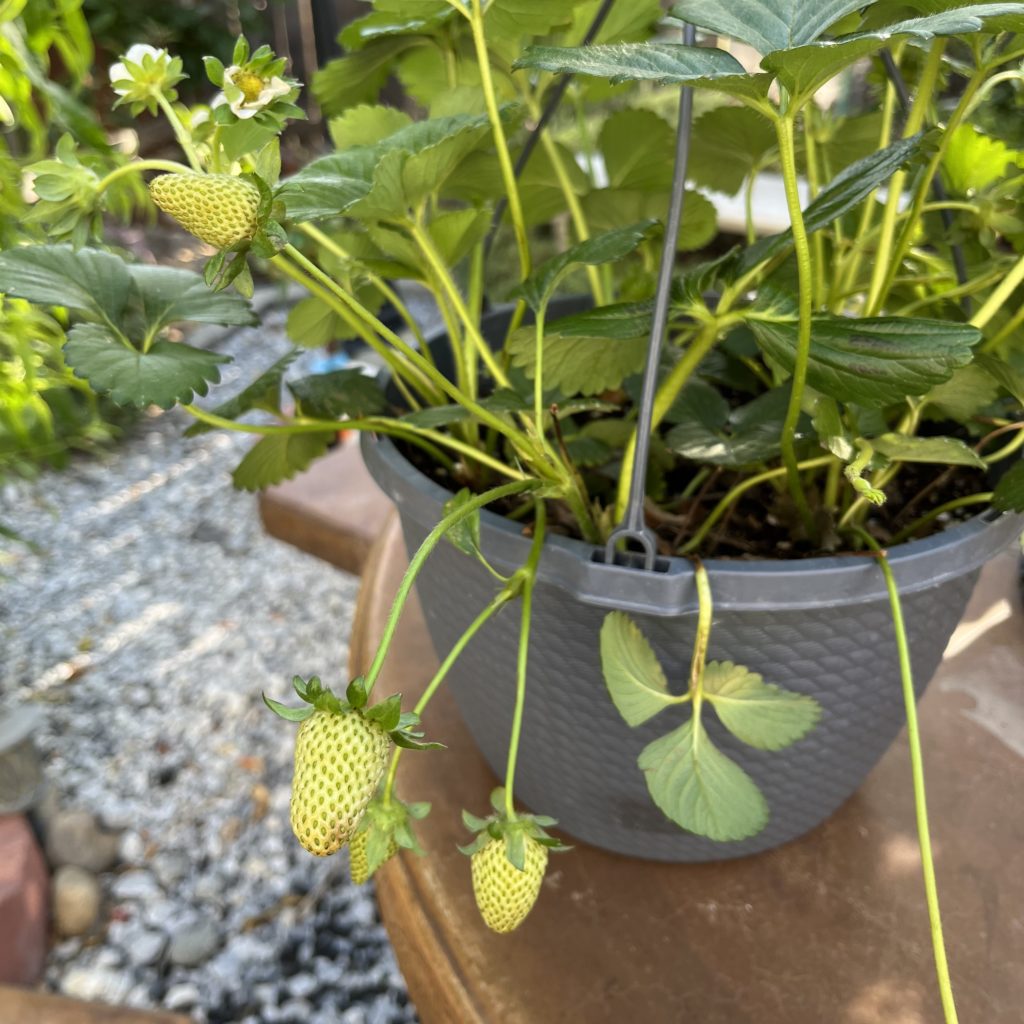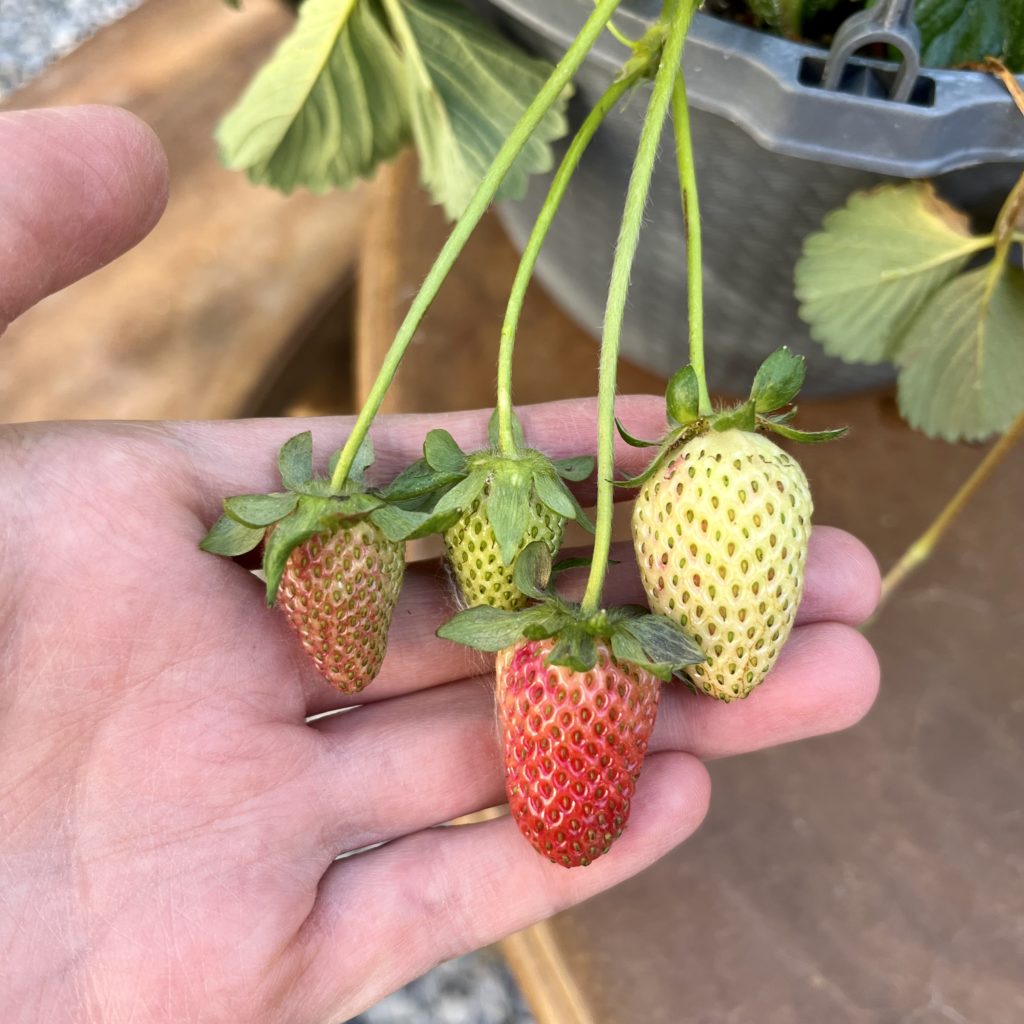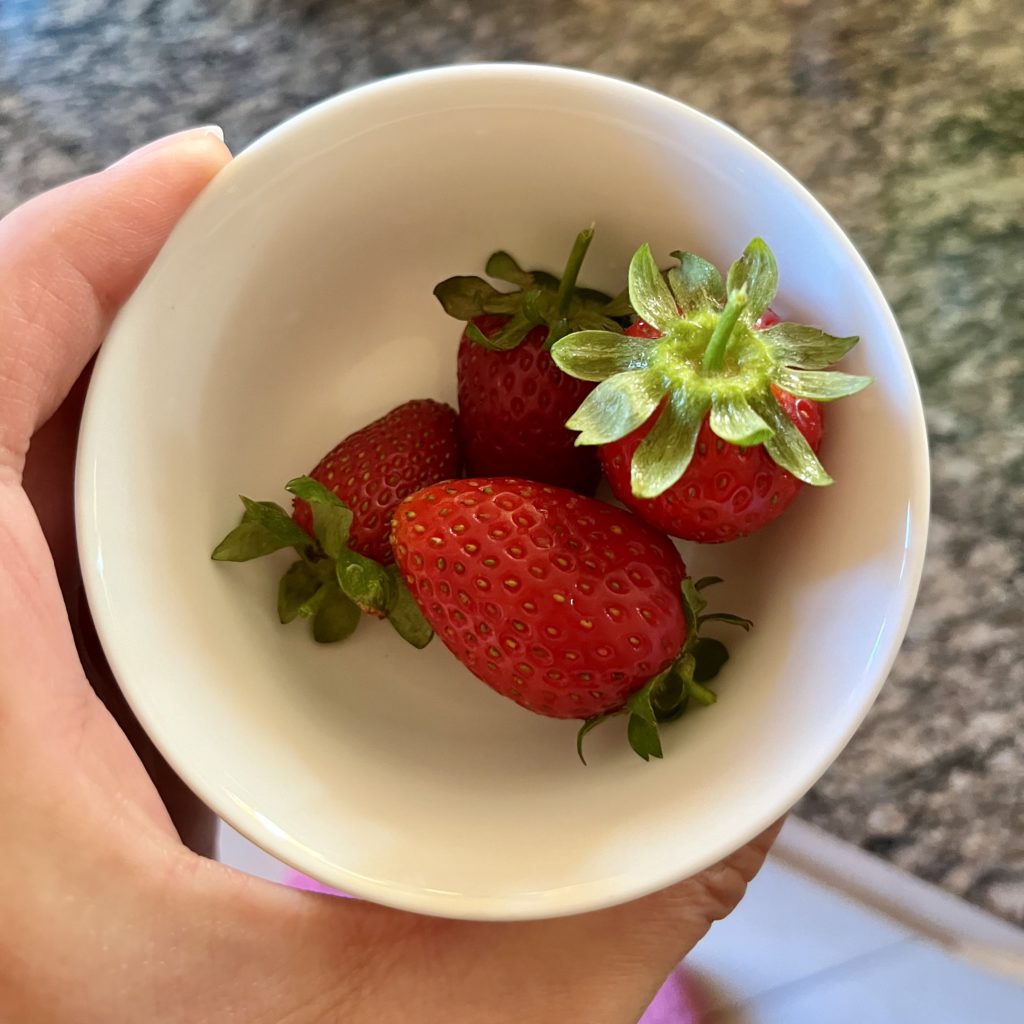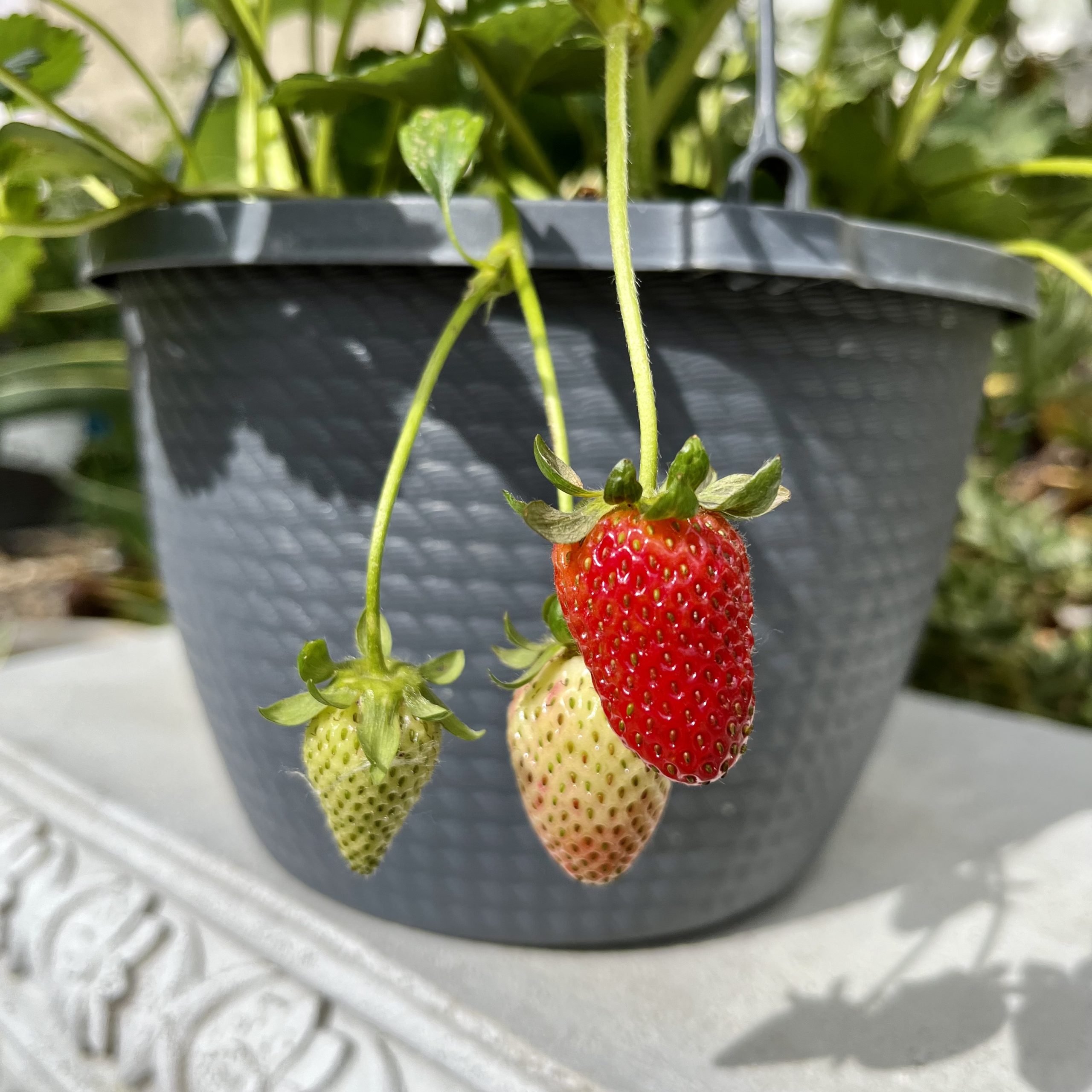On slow workday afternoons when I crave some semblance of human interaction, I wander around The Home Depot. A few years ago, you’d probably find me sauntering about in the indoor plant section, but my interest in houseplants has dramatically waned, as I’ve collected (and utterly destroyed) every big-box indoor plant I possibly could over the past five years. These days, I typically stop by the garden center.
Meandering around The Home Depot’s garden center can be a lovely experience — idyllic, even. You can almost pretend that you’re at a botanical garden if you ignore the gallon nursery pots and ugly utilitarian metal shelves. Despite my well-documented failures with herbs and edibles, I found myself leaving the store one lazy May afternoon with a strawberry plant in a giant, faux-woven plastic hanging basket. It was clearanced out at $18, which wasn’t that great a deal, but certainly still cheap enough to pique my curiosity.

With dainty flowers emerging and unripened green fruit sprouting, the plant looked promising in its generous 8-inch diameter, albeit littered with a few yellowing leaves. While my knowledge of growing edible plants is frankly limited, I’ve had slightly successful lettuce, spinach, and herb crops before, and the fact that this plant was already fruiting inspired an inkling of confidence. So, after a reckless credit card swipe, I made my merry way home.

The basics of strawberry care (in zone 9b, when you’re a fellow lazy bones gardener who bought a ready-to-go planter)
I’m happy to report that my strawberry plant has been producing fruit over the past few weeks with limited care on my part — all I’ve really done is cut off the yellowing leaves and water the soil. I’ve even plucked at least 4 to 5 ripened fruits! I’m expecting more fruit to come since it’s an everbearing strawberry variety, which means that it’s supposed to yield fruit once in the summer and once in the fall. (June-bearing strawberries offer one large harvest in early summer, and day-neutral strawberries produce fruits all summer long.)
I keep the planter outside on a stone bench where the plant receives about 7 hours of direct light every day, plus afternoon shade thanks to my neighbor’s giant palm and our fledgling apple tree. So far, I haven’t found a need to remove the plant from its planter, which comes with pre-installed drainage holes. The soil also looks just right — it appears to be some sort of standard potting mix with plenty of perlite for drainage.
I live in warm, warm zone 9b, where the temperatures are around 80 to 90 degrees Fahrenheit right now (and may reach the 110’s by midsummer). For the time being, I give my plant a good soak every other day, but I’ll probably need to invest in shade cloth and up the ante with watering when the temperatures rise. And after this first crop, I’ll probably add a bit of aged manure or compost. The good news is, it doesn’t look like strawberries are heavy feeders, so I won’t need to spend too much on fertilizer.
To harvest strawberries, all you need to do is to pull them off their stems. I gently hold the fruit and twist it off its stem, making sure that I only pick strawberries that are completely red — so that means no green bottoms!

The TLDR for everbearing strawberry plant care in a planter:
- Light: 6 to 8 hours of full sun every day, with afternoon shade to prevent leaf scorch
- Water: Evenly moist soil and watering when the top 1-2 inches feel dry, which means watering every 1-2 days in 80 to 90 degrees weather in zone 9b
- Soil: All-purpose potting mix if you’re keeping your plant in a pot
- Fertilizer: No fertilizing yet, but will consider aged manure or compost mid-season
Right now, I see about 10 strawberry fruits in the works…if this is all I get this season, it might hypothetically mean I spent $18 on 15 strawberries when $5 boxes of strawberries exist. However, we’re going to choose to be optimistic and manifest more fruit! I’ll keep you all posted. Meanwhile, I’m also growing Thai basil, lavender, and lettuce. More updates on those soon, too.
